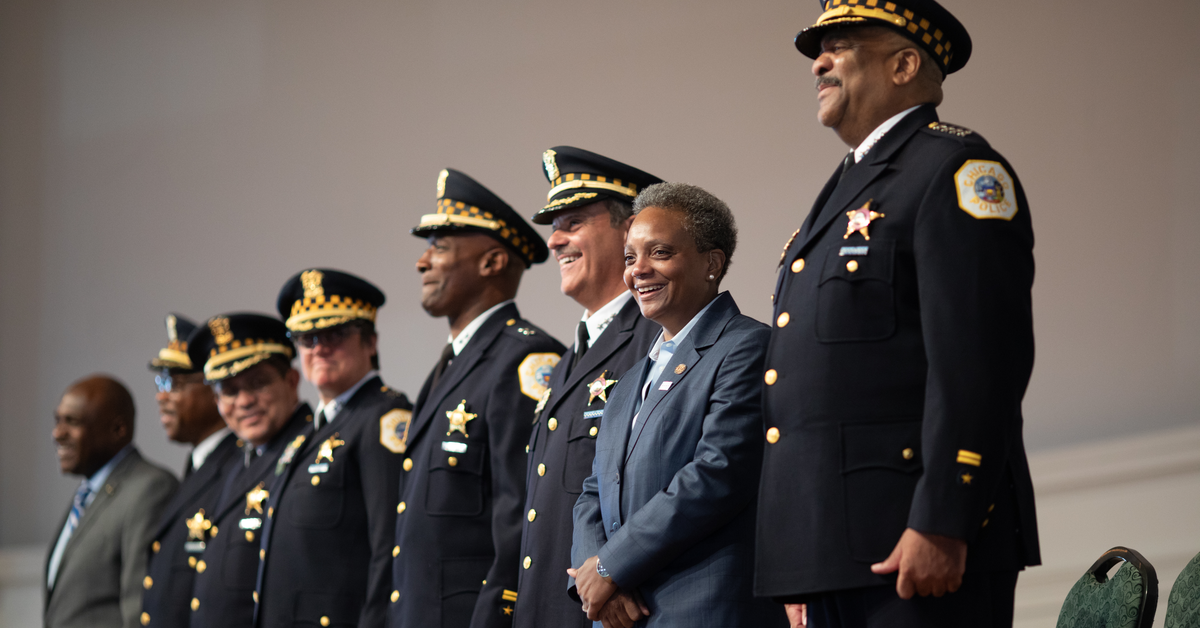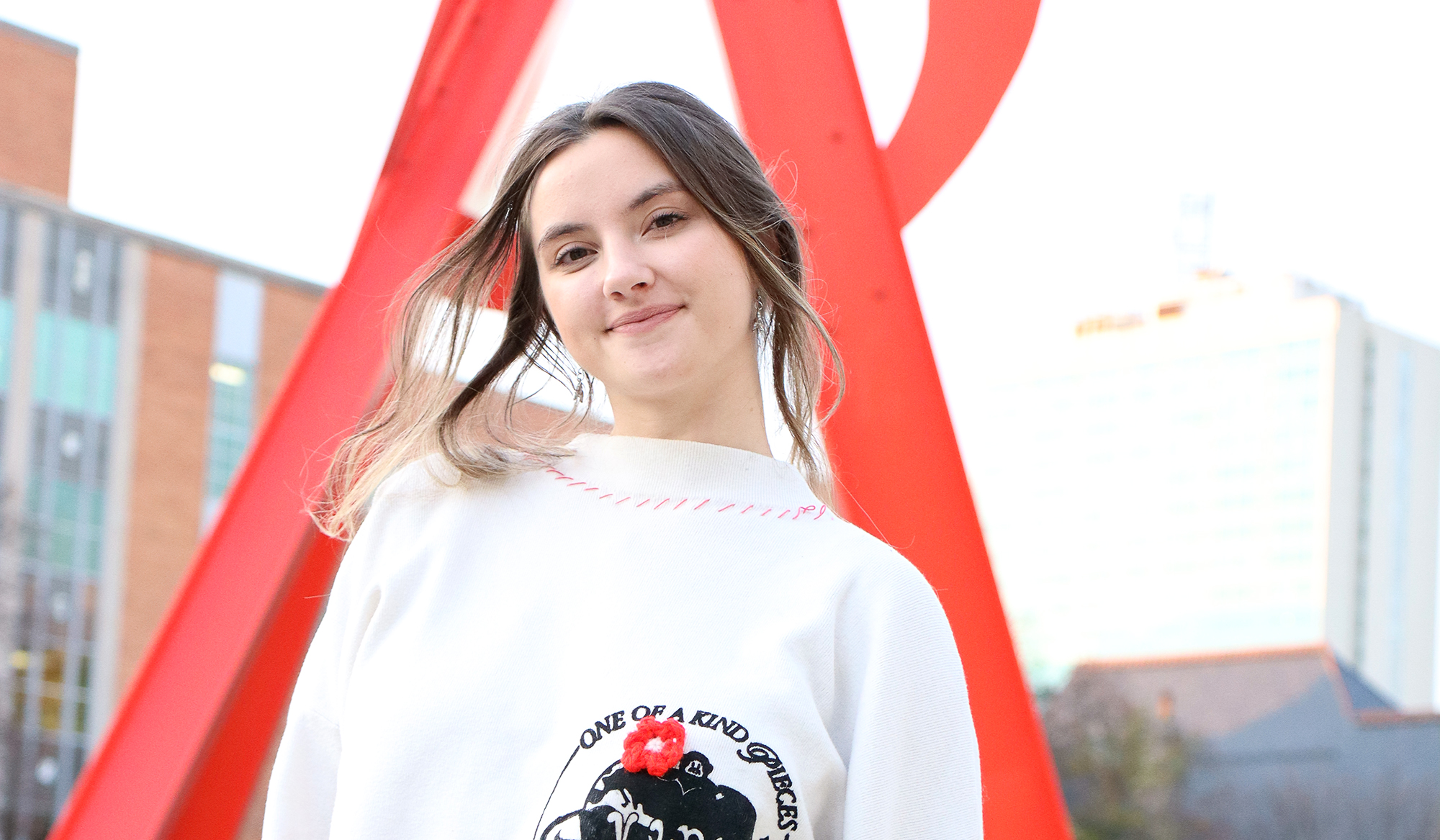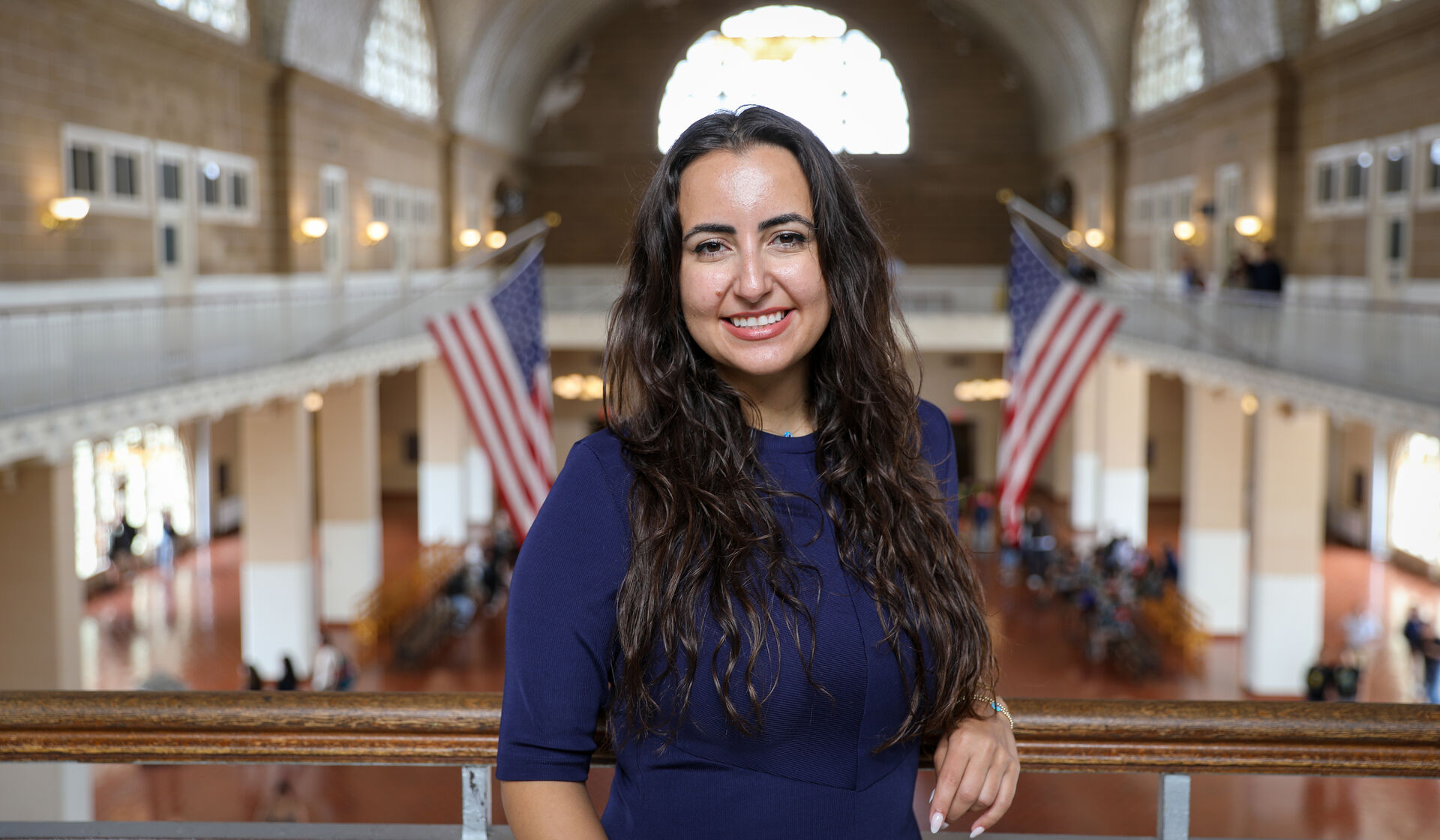Lori Lightfoot has broken the mayoral mold, ascending to the highest office in Chicago and making history as the first openly gay, black female to serve.
Her speech contains the usual mayoral rhetoric about her pride in the young people she addresses while imploring them to apply their talents to bettering their hometown.Yet something is fundamentally new about Lori Lightfoot, ’84, as she stands in an early August sunlight under the atrium atop Harold Washington Library in downtown Chicago.
Every year since the program began in 1991, Chicago’s mayor has given this talk, congratulating local minority high school kids who had completed a business internship program. But until this summer, those mayors were straight, white men born into power and privilege. Lightfoot, the black, lesbian daughter of a health aide and a deaf janitor, relates differently to these students—and they to her.
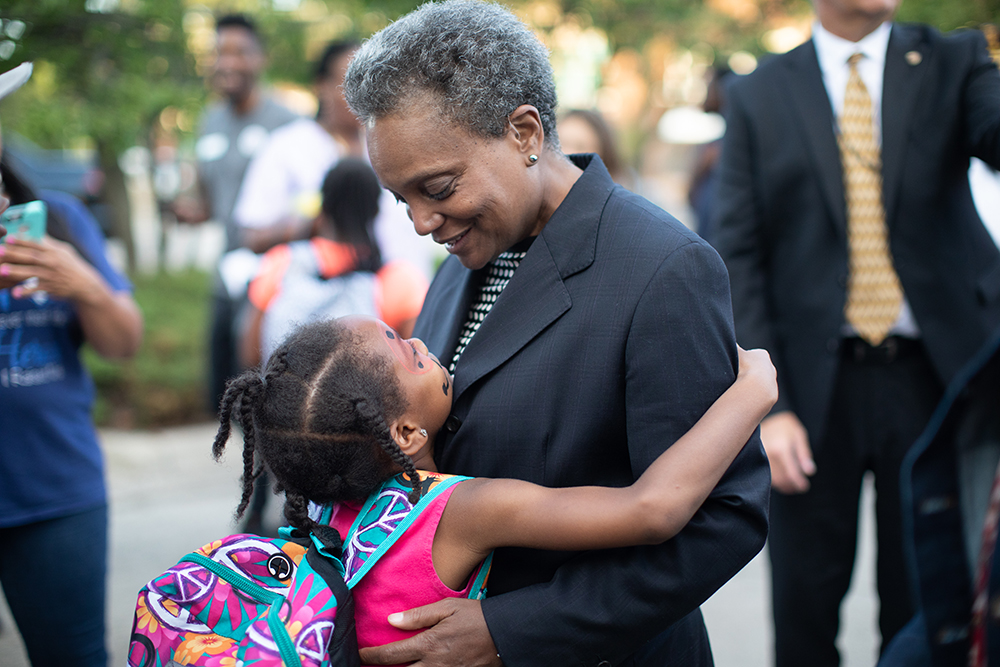
Her predecessors, for instance, could never have told this audience, “Whatever success I’ve had in my life, it wasn’t because my family was wealthy, because we weren’t. It was because I was lucky enough to be able to take advantage of the opportunities that were at my fingertips. But nothing like this existed in the small town where I grew up in in Ohio.”
That context is also a critical reminder of just how unlikely it was that Lightfoot, 57, would attain this office. A first-time candidate who polled at 2.8% in a crowded field one month before the February 2019 primary, Lightfoot shocked the political world by becoming the top vote-getter. She then advanced to an April runoff in which she crushed her opponent, Cook County Board President Toni Preckwinkle, by nearly 50 percentage points.
Even she is at a loss to explain how she did it. Her campaign was so broke, she loaned it money for a TV ad three weeks before the primary. By contrast, one of her opponents, William Daley, raised $9 million. Daley, the brother and son of longtime Chicago mayors, failed to advance from the primary.
“Two weeks out, we started feeling like something was happening, although we had no money to do polling,” she says in her City Hall office a few hours after her library speech. “We were showing up everywhere, and we had this massive volunteer organization that we built brick by brick over the course of last summer. We’d say we needed 50 volunteers for a weekend, and we’d get 100. This was an election where people just decided who to vote for at the very end.”
When they did, the electorate clearly rejected establishment candidates who represented a continuation of leadership that has left Chicago with massive debt, a notorious murder rate, racial strife, and an ever-widening gap between rich and poor. Beyond all the other much-touted ways Lightfoot was different from her predecessors, she was a legitimate political outsider.
“I did not know whether she would be able to win because there were so many candidates in the field and others who had more political experience,” says former U.S. Attorney Barbara McQuade, ’87, JD’91. Now a U-M law professor and a prominent face on MSNBC, McQuade met Lightfoot in 1983 when Lightfoot was a resident adviser in McQuade’s freshman residence, Bursley Hall. McQuade traveled to Chicago in December for a day of fundraising and campaigning events for Lightfoot. “But I had a lot of confidence that she would be terrific if she could get elected.”
Lightfoot says she’s been defying conventional wisdom all her life. She decided to attend U-M when her peers in the small industrial town of Massillon, Ohio, headed to nearby colleges—a decision that she casts as an early leap off the beaten path. She “wanted something different, but at the same time I wanted the quintessential college experience,” she says. “I chose Michigan sight unseen. I’d never even stepped foot in Ann Arbor.”
There, she encountered her first brushes with real diversity—“I didn’t know until I went to college anything about Jews and Muslims”—and learned lessons about the forces troubling Detroit that are now top of mind as she leads Chicago. Like McQuade, Lightfoot shared a residence hall during freshman year with someone who would go on to political prominence: Detroit Mayor Mike Duggan, ’80, JD’83.
Lightfoot’s interest in politics began early, too. Her mother spent nearly 25 years on a local school board, and Lightfoot, the youngest of four children, served as campaign treasurer for some of her elections. After graduating from U-M, she worked as a legislative aide in Washington, D.C., for two members of Congress, including then-Rep. Barbara Mikulski, the future iconoclastic senator from Maryland. She enrolled at the University of Chicago Law School on a full-ride scholarship but returned to Michigan to clerk for state Supreme Court Justice Charles Levin.
Her dismay at the blatant corruption in Chicago City Hall was forged during six years working as an assistant federal prosecutor and then as an attorney in Mayor Richard M. Daley’s purchasing department. She left for private practice in 2005, frustrated by the mayor’s disinterest in cleaning up troubling practices, she says. In 2015, though, Mayor Rahm Emmanuel appointed her to head the Chicago Police Board through a period of great racial strife brought on in part by the murder of black teenager Laquan McDonald by a white cop.
Again, Lightfoot clashed with her mayor, whose commitment to reform she deemed inadequate, and this time she quit to run against him. When Emmanuel announced in September 2018 that he would not seek reelection, Lightfoot’s campaign had been in full swing for five months. Her campaign emphasized her outsider status and her years of trying to combat public corruption that had long been legendary in Chicago. Among her earliest backers was Glenn Eden, ’16, a Chicago-based executive at the public relations firm Weber Shadwick.
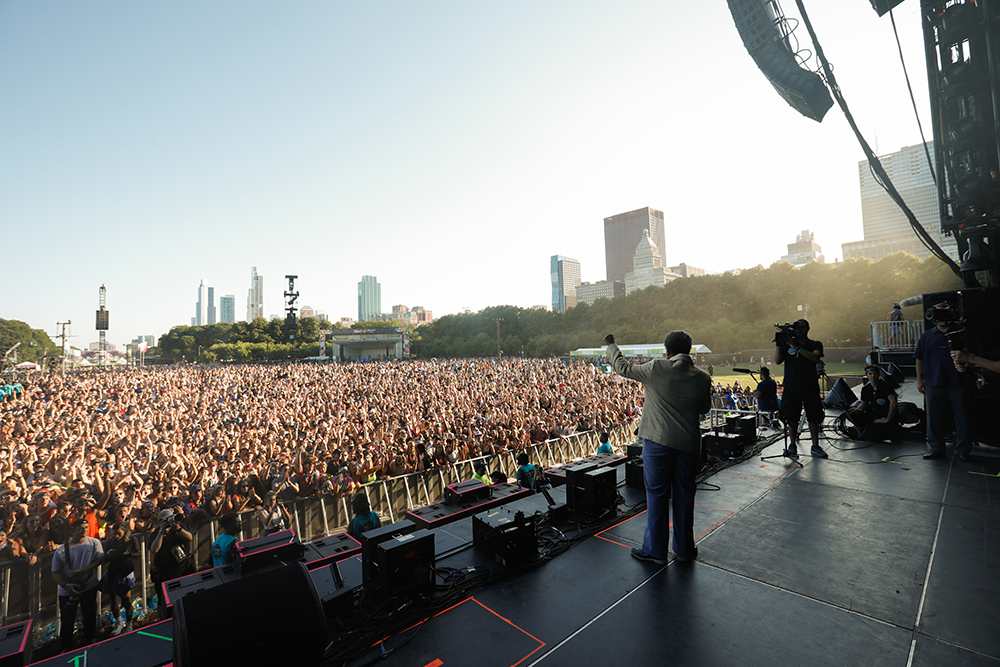
“We showed up where we needed to support her and to use our networks and our channels to get the word out about her and that she is a proud alumna,” he says, noting that Chicago boasts the world’s second-largest U-M alumni population. “Chicago was ripe for change.”
Lightfoot’s early days as mayor have her focused on fixing a $740 million budget shortfall that could hamstring other initiatives. But her victory as a black lesbian also has drawn international attention and evident enthusiasm. “I hear from parents that they took their kids into the voting booth to vote for us,” says Lightfoot, who is married and has one child. “We did the same thing with our daughter when President Obama was on the ballot.”
She sees her precedent—as the first openly gay mayor of any of the nation’s top three cities—as most significant. Until recently, she says, the idea of running for office as an out politician “was just not something in my mind’s eye.” The 2019 campaign was largely bereft of homophobia, save for an incident before the general election when anti-gay activists distributed flyers outside black churches falsely asserting Lightfoot planned to give jobs and contracts “exclusively to gay people.” In a resounding rejection of such bigotry, Lightfoot won every ward.
“You think about the progress we’ve made in our changing mindsets about the LGBTQ community just in the last 10 years, it’s been lightning fast,” she says.
It’s far too soon to anticipate Lightfoot’s next political steps, although McQuade and others already dream. “I don’t know what she wants to do,” McQuade says. “She has a lot of good common sense, good judgment, and integrity, and that will take her as far as she wants to go.”
Steve Friess is a Michigan-based freelance journalist and a 2011-12 Knight-Wallace Fellow at U-M.

